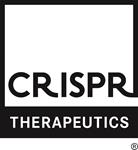News Release
|
View printer-friendly version
|
<< Back |
-More than 25 authorized treatment centers (ATCs) activated globally for CASGEVY™ and multiple patients have already had cells collected-
-Clinical trials ongoing for next generation CAR T product candidates, CTX112™ and CTX131™ targeting CD19 and CD70 respectively, across multiple indications-
-Clinical trials ongoing for in vivo gene editing product candidates, CTX310™ and CTX320™ targeting ANGPTL3 and Lp(a), respectively-
-Expands pipeline with new preclinical programs utilizing lipid nanoparticle (LNP) mediated delivery to the liver for refractory hypertension targeting angiotensinogen (AGT) and acute hepatic porphyria (AHP) targeting 5’-aminolevulinate synthase 1 (ALAS1)-
-Clinical trial ongoing for CTX211™, an allogeneic, hypoimmune, gene-edited, stem cell derived product candidate for the treatment of Type 1 Diabetes (T1D)-
-Strong balance sheet with approximately
“This quarter, in addition the robust launch of CASGEVY, we are pleased to have nominated additional in vivo programs targeting both rare and common diseases to our portfolio based on promising preclinical data,” said
Recent Highlights and Outlook
- Hemoglobinopathies and CASGEVY™ (exagamglogene autotemcel [exa-cel])
- CASGEVY is approved in the
U.S. ,Great Britain , theEuropean Union (EU), theKingdom of Saudi Arabia (KSA), and theKingdom of Bahrain (Bahrain ) for the treatment of both sickle cell disease (SCD) and transfusion-dependent beta thalassemia (TDT). Regulatory submissions for CASGEVY have been completed in both SCD and TDT inSwitzerland andCanada ; the submission inCanada was granted priority review. CASGEVY is the first therapy to emerge from a strategic partnership betweenCRISPR Therapeutics and Vertex Pharmaceuticals established in 2015. As part of an amendment to the collaboration agreement in 2021, Vertex now leads global development, manufacturing, regulatory and commercialization of CASGEVY with support fromCRISPR Therapeutics . - As of mid-April, more than 25 authorized treatment centers (ATCs) have been activated globally, including centers in all regions where CASGEVY is approved, and multiple patients have already had cells collected.
- Vertex has signed multiple agreements with both commercial and government health insurance providers in the
U.S. to provide access to CASGEVY. Vertex has also secured reimbursed access for eligible people with SCD or TDT in KSA andBahrain , as well as for people with TDT inFrance through an early access program. CRISPR Therapeutics has two next-generation approaches with the potential to significantly expand the addressable population with SCD and TDT.CRISPR Therapeutics continues to advance its internally developed targeted conditioning program, an anti-CD117 (c-Kit) antibody-drug conjugate (ADC), through preclinical studies. Additionally, the Company has ongoing research efforts to enable in vivo editing of hematopoietic stem cells. This work could obviate the need for conditioning altogether, expand geographic reach, and enable the treatment of multiple additional other diseases beyond SCD and TDT.
- CASGEVY is approved in the
- Immuno-Oncology and Autoimmune Diseases
- CRISPR Therapeutics’ next-generation allogeneic CAR T candidates reflect the Company’s mission of innovating continuously to bring potentially transformative medicines to patients as quickly as possible. Clinical trials are ongoing for the Company’s next-generation CAR T product candidates, CTX112™ and CTX131™, targeting CD19 and CD70, respectively, across multiple indications. CTX112 and CTX131 both contain novel potency edits which can lead to significantly higher CAR T cell expansion and cytotoxicity, potentially representing best-in-class allogeneic CAR T products for these targets.
- CTX112 is being developed for both oncology and autoimmune indications. In oncology settings, CTX112 is in a Phase 1/2 trial for CD19 positive relapsed or refractory B-cell malignancies, and the Company expects to report preliminary clinical data this year.
- The Company remains on track to initiate a clinical trial for CTX112 in systemic lupus erythematosus (SLE) in the first half of this year, with the potential to expand into additional autoimmune indications in the future. Early clinical studies have shown that CD19-directed autologous CAR T therapy can produce long-lasting remissions in multiple autoimmune indications by deeply depleting B cells. The Company’s first generation allogeneic CD19-directed CAR T program has demonstrated effective depletion of B cells in oncology settings, which supports the potential for CTX112 in autoimmune diseases.
- CTX131, CRISPR Therapeutics’ next generation CAR T targeting CD70, is currently in an ongoing clinical trial in solid tumors. The Company remains on track to initiate a clinical trial for CTX131 in hematologic malignancies in the first half of this year.
- CRISPR Therapeutics’ next-generation allogeneic CAR T candidates reflect the Company’s mission of innovating continuously to bring potentially transformative medicines to patients as quickly as possible. Clinical trials are ongoing for the Company’s next-generation CAR T product candidates, CTX112™ and CTX131™, targeting CD19 and CD70, respectively, across multiple indications. CTX112 and CTX131 both contain novel potency edits which can lead to significantly higher CAR T cell expansion and cytotoxicity, potentially representing best-in-class allogeneic CAR T products for these targets.
- In
Vivo
CRISPR Therapeutics has established a proprietary lipid nanoparticle (LNP) platform for the delivery of CRISPR/Cas9 to the liver. The first two in vivo programs utilizing this proprietary platform, CTX310™ and CTX320™, are directed towards validated therapeutic targets associated with cardiovascular disease, and are in ongoing clinical trials. Earlier today, the Company announced the addition of two additional preclinical programs, CTX340™ and CTX450™, utilizing this LNP delivery system, demonstrating the modularity and scalability of the platform.- Refractory hypertension is a serious unmet medical need affecting approximately 1.5 million patients in the
U.S. alone. CTX340 is designed to inhibit production of hepatic angiotensinogen (AGT), a validated target to modulate the renin-angiotensin-aldosterone system (RAAS) and normalize blood pressure durably with a one-time treatment. In preclinical studies, CTX340 showed ~60% liver editing and ~90% AGT protein reduction, resulting in sustained ~30 mmHg blood pressure (BP) reduction out to 3 months in the spontaneously hypertensive rat (SHR) model. - Acute hepatic porphyria (AHP) is a group of rare genetic diseases of heme biosynthesis. Symptomatic patients have acute attacks, characterized by debilitating neurovascular symptoms, as well as multiple chronic symptoms, such as pain. There are approximately 5,000 patients diagnosed with AHP in the
U.S. , although the disease remains underdiagnosed. CTX450 is specifically designed to inhibit production of ALAS1 in the liver, preventing accumulation of neurotoxic aminolevulinic acid (ALA) and porphobilinogen (PBG). In preclinical studies, CTX450 showed ~70% liver editing and ~97% ALAS1 protein reduction, resulting in reduction of ALA and PBG disease biomarkers to normal levels in an AHP mouse model. CRISPR Therapeutics has initiated IND/CTA-enabling studies for CTX340 and CTX450 and expects to initiate both clinical trials in the second half of 2025.- In addition to the pipeline updates expanding the liver-targeted in vivo pipeline,
CRISPR Therapeutics reported initial data at theAmerican Society of Gene and Cell Therapy Annual Meeting demonstrating its proprietary capabilities to deliver to and edit genes in the eye, opening a potential new focus area.
- Regenerative Medicine
CRISPR Therapeutics continues to advance a Phase 1 clinical trial for CTX211™ for the treatment of Type 1 Diabetes (T1D).CRISPR Therapeutics remains committed to its goal of developing a beta-cell replacement product that does not require chronic immunosuppression.- Vertex has non-exclusive rights to certain CRISPR Therapeutics’ CRISPR/Cas9 technology to accelerate development of potentially curative cell therapies for T1D.
CRISPR Therapeutics remains eligible for development milestones and would receive royalties on any future products resulting from this agreement.
- Other Corporate Matters
- In March,
CRISPR Therapeutics announced its proposal to electChristian Rommel , Ph.D., to its Board of Directors at the Company’s annual general meeting to be held this year.Dr Rommel brings in-depth experience in successfully accelerating innovation and advancing drug candidates across a breadth of modalities and disease areas. - In February,
CRISPR Therapeutics announced that it had entered into an investment agreement for the sale of approximately $280 million of its common shares to a select group of institutional investors in a registered direct offering.
- In March,
- First Quarter 2024 Financial Results
- Cash Position: Cash, cash equivalents, and marketable securities were
$2,108.1 million as ofMarch 31, 2024 , compared to$1,695.7 million as ofDecember 31, 2023 . The increase in cash was primarily driven by proceeds from theFebruary 2024 registered direct offering, a$200.0 million milestone payment received from Vertex in connection with the approval of CASGEVY, proceeds from employee option exercises as well as interest income, offset by operating expenses. - R&D Expenses: R&D expenses were
$76.2 million for the first quarter of 2024, compared to$99.9 million for the first quarter of 2023. The decrease in R&D expense was primarily driven by reduced variable external research and manufacturing costs. - G&A Expenses: General and administrative expenses were
$18.0 million for the first quarter of 2024, compared to$22.4 million for the first quarter of 2023. The decrease in G&A expense was primarily driven by a decrease in employee related and stock-based compensation expense. - Collaboration Expense: Collaboration expense, net, was
$47.0 million for the first quarter of 2024, compared to$42.2 million for the first quarter of 2023. The increase in collaboration expense, net, was primarily attributable to commercial and manufacturing costs. - Net Loss: Net loss was
$116.6 million for the first quarter of 2024, compared to a net loss of$53.1 million for the first quarter of 2023.
- Cash Position: Cash, cash equivalents, and marketable securities were
About CASGEVY™ (exagamglogene autotemcel [exa-cel])
CASGEVY™ is a non-viral, ex vivo CRISPR/Cas9 gene-edited cell therapy for eligible patients with SCD or TDT, in which a patient’s own hematopoietic stem and progenitor cells are edited at the erythroid specific enhancer region of the BCL11A gene. This edit results in the production of high levels of fetal hemoglobin (HbF; hemoglobin F) in red blood cells. HbF is the form of the oxygen-carrying hemoglobin that is naturally present during fetal development, which then switches to the adult form of hemoglobin after birth. CASGEVY has been shown to reduce or eliminate VOCs for patients with SCD and transfusion requirements for patients with TDT.
CASGEVY is approved for certain indications in multiple jurisdictions for eligible patients.
About the CRISPR Therapeutics-Vertex Collaboration
About CTX112
CTX112 is a next-generation, wholly-owned, allogeneic CAR T product candidate targeting Cluster of Differentiation 19, or CD19, which incorporates additional edits designed to enhance CAR T potency and reduce CAR T exhaustion. CTX112 is being investigated in an ongoing clinical trial designed to assess safety and efficacy of the product candidate in adult patients with relapsed or refractory CD19-positive B-cell malignancies who have received at least two prior lines of therapy.
About CTX131
CTX131 is a next-generation, wholly-owned, allogeneic CAR T product candidate targeting Cluster of Differentiation 70, or CD70, an antigen expressed on various solid tumors and hematologic malignancies. CTX131 incorporates additional edits designed to enhance CAR T potency and reduce CAR T exhaustion. CTX131 is being investigated in a clinical trial designed to assess the safety and efficacy of the product candidate in adult patients with relapsed or refractory solid tumors.
About In
About CTX211
CTX211 is an allogeneic, gene-edited, stem cell-derived investigational therapy for the treatment of T1D, which incorporates gene edits that aim to make cells hypoimmune and enhance cell fitness. This immune-evasive cell replacement therapy is designed to enable patients to produce their own insulin in response to glucose.
About CRISPR Therapeutics
Since its inception over a decade ago,
CRISPR THERAPEUTICS® standard character mark and design logo, CTX112™, CTX131™, CTX211™, CTX310™, CTX320™, CTX340™ and CTX450™ are trademarks and registered trademarks of
CRISPR Therapeutics Forward-Looking Statement
This press release may contain a number of “forward-looking statements” within the meaning of the Private Securities Litigation Reform Act of 1995, as amended, including statements made by
Investor Contact:
+1-617-307-7503
susan.kim@crisprtx.com
Media Contact:
+1-617-315-4493
rachel.eides@crisprtx.com
Condensed Consolidated Statements of Operations
(Unaudited, In thousands except share data and per share data)
| Three Months Ended |
||||||||
| 2024 | 2023 | |||||||
| Revenue: | ||||||||
| Collaboration revenue | $ | — | $ | 100,000 | ||||
| Grant revenue | 504 | — | ||||||
| Total revenue | 504 | $ | 100,000 | |||||
| Operating expenses: | ||||||||
| Research and development | 76,172 | 99,935 | ||||||
| General and administrative | 17,953 | 22,360 | ||||||
| Collaboration expense, net | 46,966 | 42,192 | ||||||
| Total operating expenses | 141,091 | 164,487 | ||||||
| Loss from operations | (140,587 | ) | (64,487 | ) | ||||
| Total other income, net | 24,720 | 12,742 | ||||||
| Net loss before income taxes | (115,867 | ) | (51,745 | ) | ||||
| Provision for income taxes | (724 | ) | (1,320 | ) | ||||
| Net loss | (116,591 | ) | (53,065 | ) | ||||
| Foreign currency translation adjustment | (11 | ) | 32 | |||||
| Unrealized (loss) gain on marketable securities | (3,454 | ) | 6,227 | |||||
| Comprehensive loss | $ | (120,056 | ) | $ | (46,806 | ) | ||
| Net loss per common share — basic | $ | (1.43 | ) | $ | (0.67 | ) | ||
| Basic weighted-average common shares outstanding | 81,794,630 | 78,676,986 | ||||||
| Net loss per common share — diluted | $ | (1.43 | ) | $ | (0.67 | ) | ||
| Diluted weighted-average common shares outstanding | 81,794,630 | 78,676,986 | ||||||
Condensed Consolidated Balance Sheets Data
(Unaudited, in thousands)
| As of | ||||||||
| Cash and cash equivalents | $ | 707,427 | $ | 389,477 | ||||
| Marketable securities | 1,400,698 | 1,304,215 | ||||||
| Marketable securities, non-current | — | 1,973 | ||||||
| Working capital | 2,000,634 | 1,799,287 | ||||||
| Total assets | 2,439,017 | 2,229,571 | ||||||
| Total shareholders' equity | 2,083,936 | 1,882,803 | ||||||

Source: CRISPR Therapeutics AG


